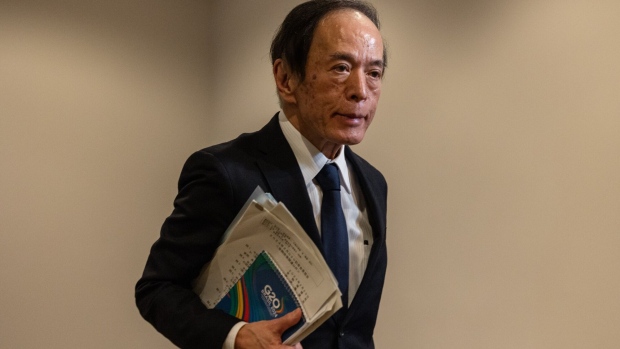Mar 18, 2024
BOJ Expected to Raise Interest Rate, End Unorthodox Stimulus
, Bloomberg News

(Bloomberg) -- The Bank of Japan appears set to raise interest rates for the first time since 2007, while also axing unorthodox measures including its yield curve control program at the end of its policy meeting Tuesday.
Governor Kazuo Ueda and his fellow board members are expected to raise rates from -0.1% to a range from zero to 0.1% around lunchtime in Tokyo, with markets mostly pricing in the changes after last week’s blockbuster wage data.
The Nikkei newspaper reported Tuesday morning that the BOJ plans to remove the 1% reference cap for 10-year government bond yields, raise rates, and dismantle a facility through which it buys ETFs.
The historic pivot away from the most aggressive monetary easing in modern history would come 11 years after the bank launched its massive stimulus bazooka in a bid to revive inflation.
Unwinding that program, which came with a number of unwelcome side effects, would be a feat by Ueda that few economists predicted was possible within a year when he took the helm last April.
The initial result of spring wage talks last week showed the best outcome since 1991, with an increase of 5.28%. That prompted a number of BOJ watchers who previously predicted a move in April to bring forward their timing to this week.
When the BOJ hikes rates, its long-standing outlier status among major central banks isn’t likely to change that much. Ueda has said financial conditions will remain accommodative even after the subzero rate is consigned to history.
The bank typically releases its policy statement around noon, although in cases when there are policy changes the decision can be delayed due to longer discussions. Ueda usually holds a press conference at 3:30 p.m.
To read this coverage - and more - in Japanese, check out Bloomberg’s Japanese-language website, and sign up to our ‘Five Things to Start Your Day: Japan’ newsletter.
©2024 Bloomberg L.P.






